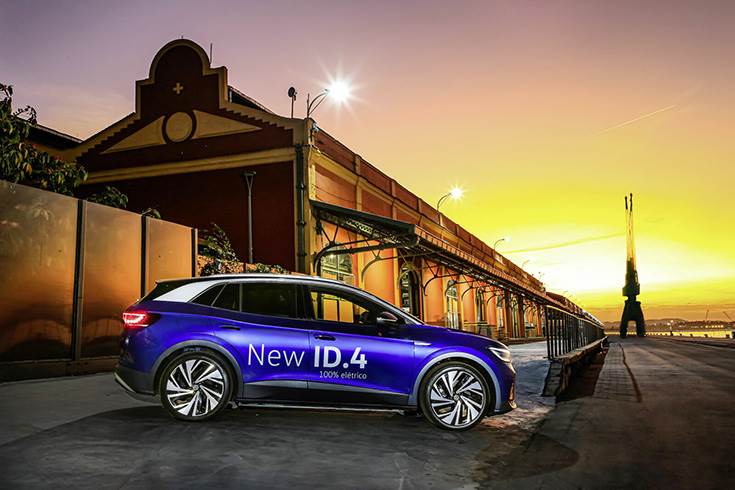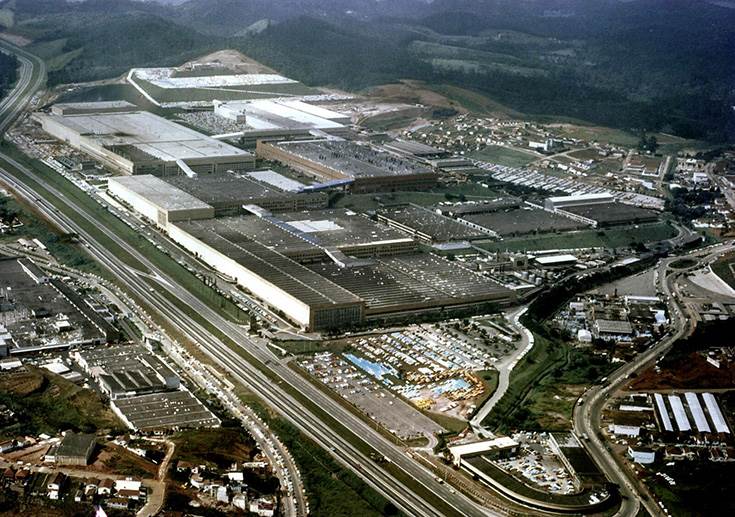Volkswagen today unveiled a strategic growth game-plan for South America and aims to make significant gains with a major product offensive. The company has outlined an investment of a billion euros (Rs 8,788 crore) by 2026.
By 2027, the company plans to grow by 40 percent in Brazil, the region’s largest market. For example, 15 new electric and flex-fuel vehicle models are being launched by 2025 alone. Hybrid vehicles will also follow in the medium term. Before the end of 2023, the company is bringing its first fully electric models to Brazil – the Volkswagen ID.4. and the ID. Buzz.
Volkswagen’s bullishness on the South American automotive market stems from the premise that it is expected to grow at 11% a year until 2030 – making it one of the fastest growing markets in the world. Therefore, VW, which is celebrating its 70th anniversary of operations in Brazil, is systematically implementing its strategy to rapidly expand its business in growth markets.

Further strengthening competitiveness
According to Thomas Schafer, CEO, Volkswagen Brand, “As a fast-growing car market, South America is of strategic importance to Volkswagen. In recent years, the local team has achieved the turnaround and sustainably improved profitability and competitiveness. The task now is to continue working on the cost position and at the same time implementing the product offensive. To this end, we are investing one billion euros in South America by 2026.”
The South America region had returned to profitability in 2021 after many years and already made a significant contribution to earnings in 2022.
Alexander Seitz, Executive Chairman, Volkswagen Group South America, added: “With the product offensive, we are bringing extremely attractive vehicles to customers in Brazil and in South America. It helps us accelerate the transformation to zero-carbon and fully networked mobility. And we are making good progress. The new Polo is already the best-selling car in Brazil. The launch of the best-selling ID.4 and the iconic ID. Buzz in the Brazilian market will bring us further momentum.”
EVs as subscriptions
Volkswagen is also investing in the development of ethanol-based combustion engines and new business models. For example, more than 3,000 car subscriptions were taken out in Brazil in 2022 at Volkswagen – this number is expected to grow by around 150% in 2023.

At the same time, Volkswagen will offer its first fully electric vehicles – the ID.4 and the ID. Buzz – in Brazil as subscriptions in 2023, thus driving its transformation to a sustainable mobility provider. The company expects the transformation towards pure e-drives in Brazil to be less dynamic than in Europe – the overall share of pure BEV vehicles in 2033 in the Brazilian market is estimated at around 4 percent. However, Volkswagen aims to grow faster than the market in the BEV segment.
Focus remains on biofuels for the region
Until the market is fully electrified, Volkswagen states that it “will rely on alternative drives and openness to technology.” For example, all new models produced in the region will continue to be able to run on 100 percent biofuel. In doing so, they make an important contribution to the sustainability strategy and Volkswagen South America’s Way to Zero.
The engines developed in Europe will be adapted and developed in Volkswagen Brazil’s newly opened development centre. The flex-fuel vehicles developed by Volkswagen in Brazil can basically run on ethanol and petrol, as well as any mixtures of these fuels. In Europe, a maximum of 10% biofuel is added (E10). One focus of Volkswagen’s product offensive is the A0 and A segment, as well as CUVs / SUVs – the fastest growing market segment in the world. The A0 segment already makes up nearly 40% of the South American market and will also continue to grow disproportionately to the market.

Seven decades in Brazil
Volkswagen began production in Brazil 70 years ago in São Paulo – it was also the first plant outside Germany. Twelve employees were assembling parts imported from Germany there at the beginning. Today, Volkswagen is Brazil’s largest automobile manufacturer, having produced a total of 25 million vehicles in 70 years, four million of which were exported. The company develops and produces the Polo, Virtus, Nivus, Taos and T-Cross models, among others, at four plants in the country and sells the cars through around 500 dealerships.
